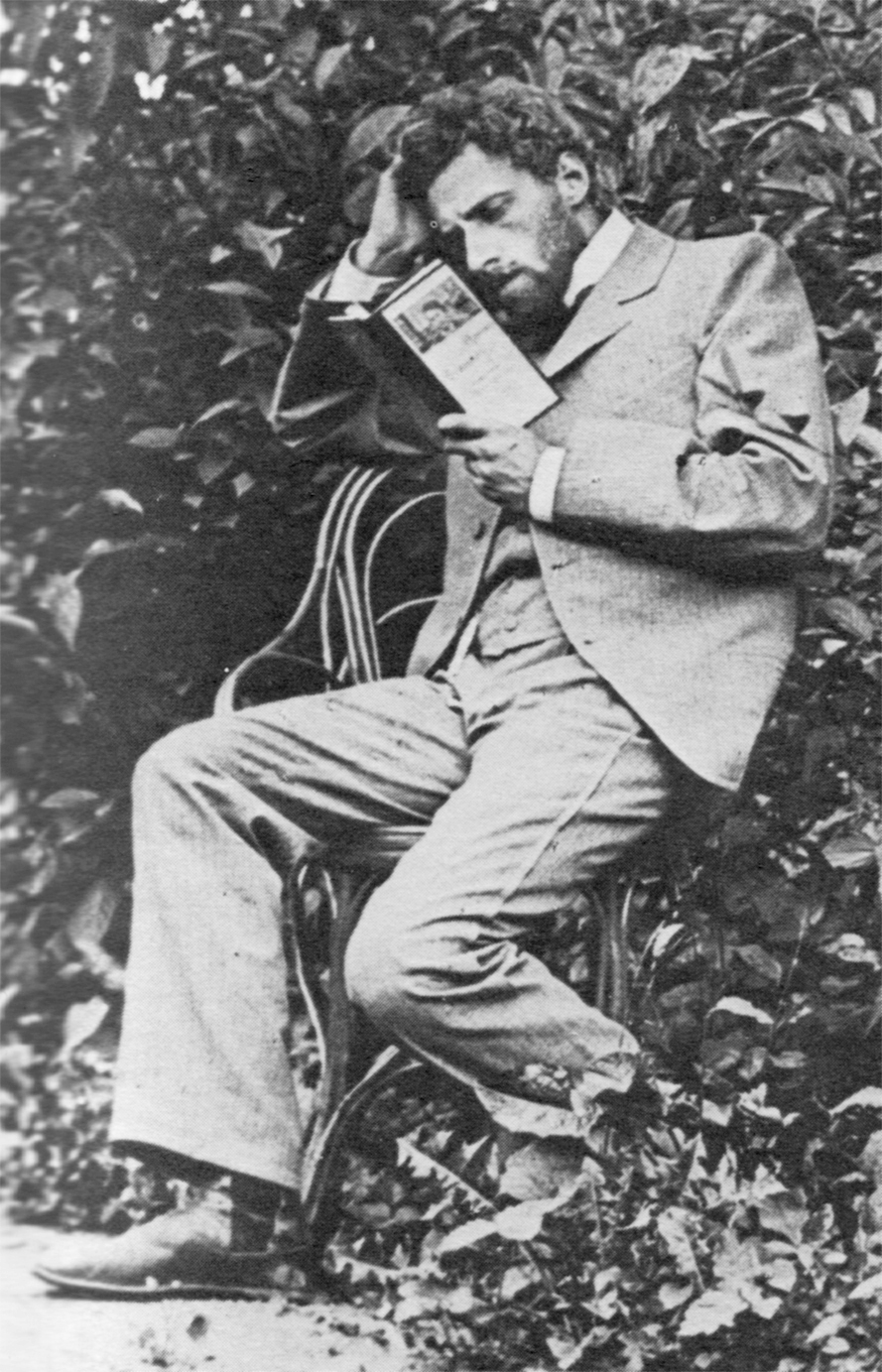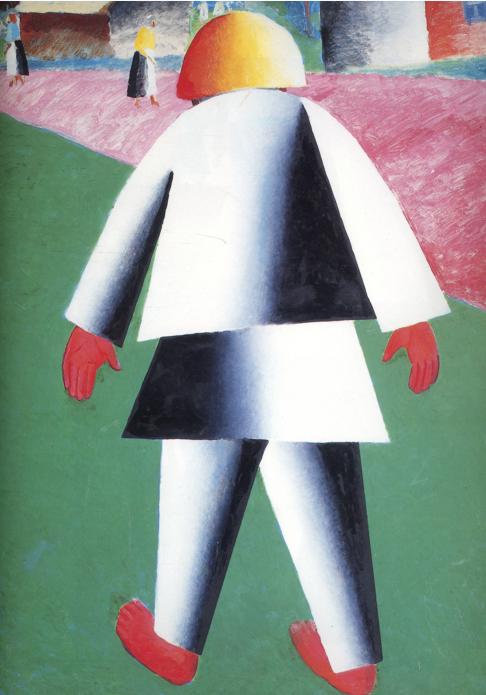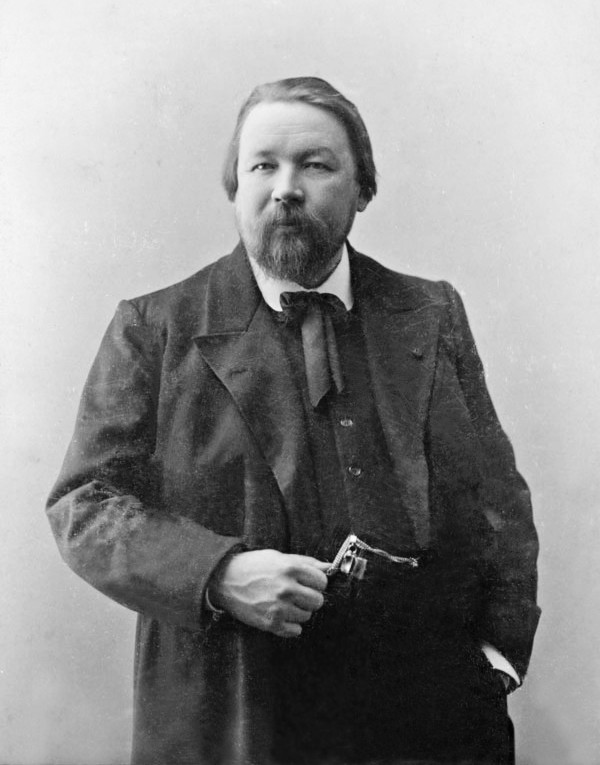|
Nikolai Roslavets
Nikolai Andreevich Roslavets (russian: link=no, Никола́й Андре́евич Ро́славец; in Surazh, Chernigov Governorate, Russian Empire – 23 August 1944 in Moscow) was a significant Ukrainian modernist composer of Belorussian and Ukrainian origin. Roslavets was a convinced modernist and cosmopolitan thinker; his music was officially suppressed from 1930 onwards. Among his works are five symphonic poems (three of them are lost), two violin concertos, five string quartets, two viola sonatas, two cello sonatas, six violin sonatas, and five piano trios. Life There are three autobiographies by Roslavets that differ considerably from one another. In one of them, published 1924, the composer deliberately misrepresented his biographyLobanova 1997, 25ff. in order to prevent the attacks by the "Proletarian Musician" faction. There are differing accounts of Roslavets' birthplace, some indicating that he was born in Dushatyn to a peasant family, while he actually w ... [...More Info...] [...Related Items...] OR: [Wikipedia] [Google] [Baidu] |
Nikolay Roslavets
Nikolai Andreevich Roslavets (russian: link=no, Никола́й Андре́евич Ро́славец; in Surazh, Chernigov Governorate, Russian Empire – 23 August 1944 in Moscow) was a significant Ukrainian modernist composer of Belorussian and Ukrainian origin. Roslavets was a convinced modernist and cosmopolitan thinker; his music was officially suppressed from 1930 onwards. Among his works are five symphonic poems (three of them are lost), two violin concertos, five string quartets, two viola sonatas, two cello sonatas, six violin sonatas, and five piano trios. Life There are three autobiographies by Roslavets that differ considerably from one another. In one of them, published 1924, the composer deliberately misrepresented his biographyLobanova 1997, 25ff. in order to prevent the attacks by the "Proletarian Musician" faction. There are differing accounts of Roslavets' birthplace, some indicating that he was born in Dushatyn to a peasant family, while he actually w ... [...More Info...] [...Related Items...] OR: [Wikipedia] [Google] [Baidu] |
Arkady Abaza
Arkady Maksimovich Abaza (Абаза́ Арка́дий Макси́мович; 1843 in Sverdlikovo, Kursk Governorate – , in Kursk) was a Russian composer, journalist and pianist. He studied in St. Petersburg with Alexander Dreyschock for fortepiano and singing in the class of Camille Everardi. Later he was an associate of Hans von Bulow. He taught and was director of a music school in Sumy (1877–81) and then in Kursk (1882–1915). Among his students, at Kursk, was Nikolai Roslavets.Music of the Twentieth-Century Avant-Garde: A Biocritical Sourcebook - Page 398 Larry Sitsky - 2002 "He oslavetshad lessons at Kursk with Arkady Abaza, who had been an associate of Hans von Bulow and was a journalist as well as a composer and pianist. " His most famous song is "Foggy Morning" (Утро туманное) to lyrics of Ivan Turgenev Ivan Sergeyevich Turgenev (; rus, links=no, Ива́н Серге́евич Турге́невIn Turgenev's day, his name was written ., p=ɪˈva ... [...More Info...] [...Related Items...] OR: [Wikipedia] [Google] [Baidu] |
Yelets
Yelets, or Elets (russian: Еле́ц), is a city in Lipetsk Oblast, Russia, situated on the Bystraya Sosna River, which is a tributary of the Don. Population: History Yelets is the oldest center of the Central Black Earth Region. It was mentioned in historical documents as early as 1146 or 1147, when it was a fort belonging to the Princes of Ryazan. The town's position at the very south of Russian lands made it an easy prey for Turkic conquerors. The Mongols burned it in 1239, Uzbeg Khan ravaged it in 1316, Timur sacked it in 1395, and the Tatars devastated it in 1414. In 1483, the Principality of Yelets was absorbed by the Grand Duchy of Moscow, while the local Rurikid rulers (last heard of in the 19th century) entered the service of Ivan III. In 1591, Boris Godunov revived the largely deserted town by establishing a fortress there. In 1618, the fortress was captured "by subterfuge" by 20,000 Cossacks under Petro Konashevych-Sahaidachny, allied with Władysław&n ... [...More Info...] [...Related Items...] OR: [Wikipedia] [Google] [Baidu] |
Vsevolod Meyerhold
Vsevolod Emilyevich Meyerhold (russian: Всеволод Эмильевич Мейерхольд, translit=Vsévolod Èmíl'evič Mejerchól'd; born german: Karl Kasimir Theodor Meyerhold; 2 February 1940) was a Russian and Soviet theatre director, actor and theatrical producer. His provocative experiments dealing with physical being and symbolism in an unconventional theatre setting made him one of the seminal forces in modern international theatre. During the Great Purge, Meyerhold was arrested in June 1939. He was tortured, his wife was murdered, and he was executed on 2 February 1940. Life and work Early life Vsevolod Meyerhold was born Karl Kasimir Theodor Meyerhold in Penza on to Russian-German wine manufacturer Friedrich Emil Meyerhold and his Baltic German wife, Alvina Danilovna (). He was the youngest of eight children.Pitches (2003, pg. 4) After completing school in 1895, Meyerhold studied law at Moscow University but never completed his degree. He was ... [...More Info...] [...Related Items...] OR: [Wikipedia] [Google] [Baidu] |
Kazimir Malevich
Kazimir Severinovich Malevich ; german: Kasimir Malewitsch; pl, Kazimierz Malewicz; russian: Казими́р Севери́нович Мале́вич ; uk, Казимир Северинович Малевич, translit=Kazymyr Severynovych Malevych ., group=nb (Запись о рождении в метрической книге римско-католического костёла св. Александра в Киеве, 1879 год // ЦГИАК Украины, ф. 1268, оп. 1, д. 26, л. 13об—14. – 15 May 1935) was a ... [...More Info...] [...Related Items...] OR: [Wikipedia] [Google] [Baidu] |
Arthur Lourié
Arthur-Vincent Lourié, born ''Naum Izrailevich Luria'' (russian: Наум Израилевич Лурья), later changed his name to ''Artur Sergeyevich Luriye'' (russian: Артур Серге́евич Лурье) (14 May 1892 in Propoysk – 12 October 1966 in Princeton, New Jersey) was a significant Russian composer. Lourié played an important role in the earliest stages of the organization of Soviet music after the 1917 Revolution but later went into exile. His music reflects his close connections with contemporary writers and artists, and also his close relationship with Igor Stravinsky. Russian career Born into a prosperous Jewish family, he converted to Catholicism while still in Russia. An admirer of van Gogh, from whom he derived the name 'Vincent', Lourié was partly self-taught, but also studied piano with Barinova and composition with Glazunov at the Saint Petersburg Conservatory, graduating in 1913. He became friendly with the Futurist poets and particularly Anna ... [...More Info...] [...Related Items...] OR: [Wikipedia] [Google] [Baidu] |
Russian Futurism
Russian Futurism is the broad term for a movement of Russian poets and artists who adopted the principles of Filippo Marinetti's "Manifesto of Futurism," which espoused the rejection of the past, and a celebration of speed, machinery, violence, youth, industry, destruction of academies, museums, and urbanism; it also advocated the modernization and cultural rejuvenation. Russian Futurism began roughly in the early 1910s; in 1912, a year after Ego-Futurism began, the literary group "Hylea" - also spelt "Guilée" and "Gylea" – issued the manifesto ''A Slap in the Face of Public Taste''. The 1912 movement was originally called Cubo-Futurism, but this term is now used to refer to the style of art produced. Russian Futurism ended shortly after the Russian Revolution of 1917, after which former Russian Futurists either left the country, or participated in the new art movements. Notable Russian Futurists included Natalia Goncharova, Mikhail Larionov, David Burliuk, Kazimir Malevic ... [...More Info...] [...Related Items...] OR: [Wikipedia] [Google] [Baidu] |
Verse Drama
Verse drama is any drama written significantly in verse (that is: with line endings) to be performed by an actor before an audience. Although verse drama does not need to be ''primarily'' in verse to be considered verse drama, significant portions of the play should be in verse to qualify. For a very long period, verse drama was the dominant form of drama in Europe (and was also important in non-European cultures). Greek tragedy and Racine's plays are written in verse, as is almost all of William Shakespeare's, Ben Jonson's and John Fletcher's drama, and other works like Goethe's ''Faust'' and Henrik Ibsen's early plays. In most of Europe, verse drama has remained a prominent art form, while at least popularly, it has been tied almost exclusively to Shakespeare in the English tradition. In the English language, verse has continued. In the new millennium, there has been a resurgence in interest in the form of verse drama. Some of them came in blank verse or iambic pentameter an ... [...More Info...] [...Related Items...] OR: [Wikipedia] [Google] [Baidu] |
Lord Byron
George Gordon Byron, 6th Baron Byron (22 January 1788 – 19 April 1824), known simply as Lord Byron, was an English romantic poet and Peerage of the United Kingdom, peer. He was one of the leading figures of the Romantic movement, and has been regarded as among the greatest of English poets. Among his best-known works are the lengthy Narrative poem, narratives ''Don Juan (poem), Don Juan'' and ''Childe Harold's Pilgrimage''; many of his shorter lyrics in ''Hebrew Melodies'' also became popular. Byron was educated at Trinity College, Cambridge, later traveling extensively across Europe to places such as Italy, where he lived for seven years in Venice, Ravenna, and Pisa after he was forced to flee England due to lynching threats. During his stay in Italy, he frequently visited his friend and fellow poet Percy Bysshe Shelley. Later in life Byron joined the Greek War of Independence fighting the Ottoman Empire and died leading a campaign during that war, for which Greeks rev ... [...More Info...] [...Related Items...] OR: [Wikipedia] [Google] [Baidu] |
Cantata
A cantata (; ; literally "sung", past participle feminine singular of the Italian verb ''cantare'', "to sing") is a vocal composition with an instrumental accompaniment, typically in several movements, often involving a choir. The meaning of the term changed over time, from the simple single-voice madrigal of the early 17th century, to the multi-voice "cantata da camera" and the "cantata da chiesa" of the later part of that century, from the more substantial dramatic forms of the 18th century to the usually sacred-texted 19th-century cantata, which was effectively a type of short oratorio. Cantatas for use in the liturgy of church services are called church cantata or sacred cantata; other cantatas can be indicated as secular cantatas. Several cantatas were, and still are, written for special occasions, such as Christmas cantatas. Christoph Graupner, Georg Philipp Telemann and Johann Sebastian Bach composed cycles of church cantatas for the occasions of the liturgical year. ... [...More Info...] [...Related Items...] OR: [Wikipedia] [Google] [Baidu] |
Alexander Ilyinsky
Alexander Alexandrovich Ilyinsky (russian: Алекса́ндр Алекса́ндрович Ильи́нский; 23 February 1920) was a Russian music teacher and composer, best known for the ''Lullaby (Berceuse)'', Op. 13, No. 7, from his orchestral suite "Noure and Anitra", and for the opera ''The Fountain of Bakhchisaray'' set to Pushkin's poem of the same name. Alexander Ilyinsky was born in Tsarskoye Selo in 1859. His father was a physician in the Alexander Cadet Corps. His general education was in the First Cadet Corps at St Petersburg, and he served in the Artillery from 1877 to 1879. His music studies were in Berlin, under Theodor Kullak and Natanael Betcher at the Berlin Conservatory, and under Woldemar Bargiel at the Neue Akademie der Tonkunst. He returned to Russia in 1885, graduated from the St Petersburg Conservatory and taught at the Moscow Philharmonic Society School of Music and Drama. He resigned in 1899 and started giving private lessons. In 1905 he ... [...More Info...] [...Related Items...] OR: [Wikipedia] [Google] [Baidu] |
Mikhail Ippolitov-Ivanov
Mikhail Mikhailovich Ippolitov-Ivanov (russian: Михаи́л Миха́йлович Ипполи́тов-Ива́нов; 28 January 1935) was a Russian and Soviet composer, conductor and teacher. His music ranged from the late-Romantic era into the 20th century era. Biography He was born in 1859 at Gatchina, near St. Petersburg, where his father was a mechanic employed at the palace. His birth name was Mikhail Mikhailovich Ivanov; later he added Ippolitov, his mother's maiden name, to distinguish himself from a composer and music critic with an identical name ( Mikhail Ivanov). He studied music at home and was a choirboy at the cathedral of St. Isaac, where he also had musical instruction, before entering the St. Petersburg Conservatory in 1875. In 1882 he completed his studies as a composition pupil of Rimsky-Korsakov, whose influence was to remain strong. Ippolitov-Ivanov's first appointment was to the position of director of the music academy and conductor of the orc ... [...More Info...] [...Related Items...] OR: [Wikipedia] [Google] [Baidu] |







